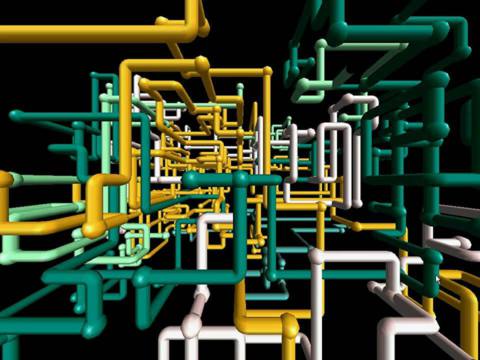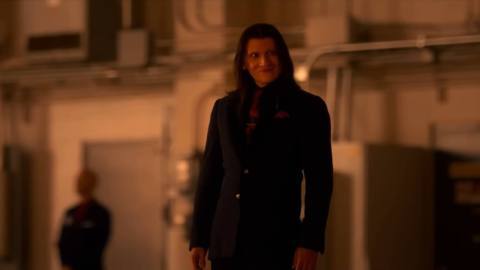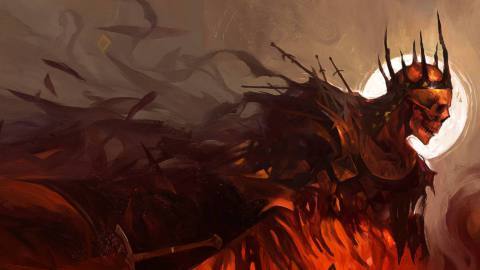
I probably encountered screensavers around the time I read Dune for the first time. Weird as it sounds, the two things have become interlocked in my mind slightly, like one of those magic tricks with separate pieces of metal infuriatingly bent around each other.
We are talking secondary school, the early years. In an old paperback belonging to my stepmother I was reading about this substance, spice, that allowed people to fold space, to travel between distant points without actually traveling anywhere. And then on the computer screens in the old PC lab in my school, these rows of monitors would occasionally switch from whatever they were doing – pages of text, maths programs – and you’d get, what? Mazes! Starfields! Words spinning in an abyss.
The folding of space – this is what computers do, right? Obviously they do it now with the internet, as you scroll over this formless universe of information where every point is instantaneously connected to every other point, this hypertext Oort cloud or nebula. But even before that, computers had this weird depth, this realm behind the screen, a place so clearly real that William Gibson coined a name for it: cyberspace. Back before internet connections, when computers were just operating systems and the programs they ran, they still did this – they still folded space and took you with them as they hopped across the gaps.






